SEO, or Search Engine Optimisation, is the process of improving a website’s visibility on search engines like Google, Bing, or Yahoo. It’s like giving your website a way to showcase its value to search engines. In simple terms, it helps your website rank higher in search results when people search for topics related to your content.
For beginners in 2025, understanding SEO is not just important, it’s empowering. It brings in organic traffic—visitors who discover your site naturally, without depending on paid ads. This guide explains SEO in straightforward language, covering how it works, why it matters, and practical steps to start optimising your website. It’s written to be original, human-crafted, and optimised for Google AdSense compliance, ensuring high-quality content that is free from plagiarism.
What Is SEO?
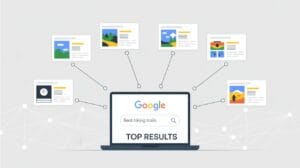
SEO is like giving your website a way to showcase its value to search engines. It involves techniques to make your site more appealing to search engines so they present it to users searching for relevant terms. For example, if you run a blog about healthy recipes, SEO helps your site appear when someone searches for “easy healthy dinner ideas.”
In 2025, SEO focuses more on users than ever. Search engines now prioritise websites that offer valuable content, fast loading times, and a great user experience. By optimising your site, you’re not just following the rules; you’re ahead of the competition. You enhance your chances of appearing on the first page of search results, which is crucial since most users don’t go beyond that page.
Why Is SEO Important for Beginners?
- Drives Free Traffic: Unlike paid ads, SEO brings organic visitors without ongoing costs.
- Builds Trust: High-ranking websites are seen as credible by users.
- Cost-Effective: SEO is a long-term strategy that delivers results without constant spending.
- AdSense Compliance: Well-optimised content meets Google AdSense rules, increasing your chances of earning ad revenue.
How Does SEO Work?
SEO works by aligning your website with search engine algorithms. These algorithms serve as rulebooks that decide which websites rank higher in search results. Google, the most popular search engine, utilises over 200 factors to rank websites. However, beginners can focus on three main areas: on-page SEO, off-page SEO, and technical SEO.
Let’s break them down.
1. On-Page SEO: Optimising Your Content
On-page SEO involves everything you control on your website, like content, keywords, and structure. Here’s how to do it:
a. Keyword Research
Keywords are words or phrases that people type into search engines. For example, “SEO for beginners 2025” is a keyword. Use tools like Google Keyword Planner, Ubersuggest, or AnswerThePublic to find keywords with decent search volume and low competition.
Tip: Choose long-tail keywords (e.g., “how to start SEO for beginners”) because they’re easier to rank for and attract specific audiences.
b. High-Quality Content
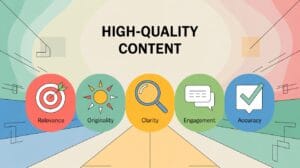
Content is the core of SEO. Write articles, blogs, or guides that solve problems or answer questions. For example, this blog aims to provide a clear explanation of SEO for beginners.
- Keep It Simple: Use short sentences and everyday words.
- Be Original: Never copy content from other sites to avoid plagiarism and AdSense penalties.
- Add Value: Include tips, examples, or step-by-step guides to make your content valuable.
c. Optimise Headings and Meta Tags
Use proper heading tags (H1, H2, H3) to organise your content. This blog uses an H1 for the main title and H2/H3 for subheadings. Also, write a meta title (under 60 characters) and meta description (under 160 characters) that include your primary keyword.
For example:
Meta Title: SEO for Beginners 2025: Easy Guide to Start
Meta Description: Learn what SEO is and how it works in 2025. Simple tips for beginners to boost website ranking and drive traffic.
d. Use Internal and External Links
Link to other pages on your website (internal links) to keep visitors engaged and help them navigate your site effectively. Also, link to reputable sites (external links) to support your points. For example, you could link to Google’s official SEO guide for credibility.
2. Off-Page SEO: Building Authority
Off-page SEO happens outside your website and focuses on building your site’s reputation. The main factor is backlinks—links from other websites to yours. Search engines view backlinks as a form of a trust vote.
According to Google’s SEO Starter Guide, following proper practices can help your content appear more prominently in search results.
a. How to Get Backlinks
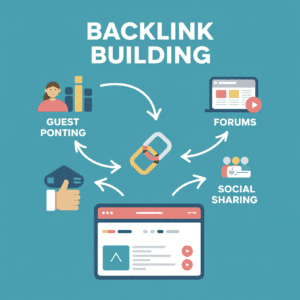
- Guest Posting: Write articles for other blogs in your niche and include a link to your site.
- Social Media: Share your content on platforms like X, LinkedIn, or Pinterest to drive traffic.
- Engage in Forums: Answer questions in online communities and subtly link to your site.
b. Focus on Quality
Only seek backlinks from reputable websites. Low-quality or spammy links can hurt your rankings and violate AdSense policies.
3. Technical SEO: Making Your Site Search-Engine Friendly
Technical SEO ensures your website is easy for search engines to crawl and index. Beginners can start with these basics:
a. Mobile-Friendly Design
By 2025, most searches are expected to occur on mobile devices. Utilise a responsive website design that functions optimally on both mobile devices and desktops. Test your site with Google’s Mobile-Friendly Test tool.
b. Fast Loading Speed
A slow website frustrates users and hurts rankings. Utilise tools like Google PageSpeed Insights to assess and optimise your site’s speed.
c. XML Sitemap and Robots.txt
Create an XML sitemap to help search engines find your pages. Ensure your robots.txt file doesn’t block essential pages from being crawled.
d. Secure Website (HTTPS)
Use an SSL certificate to secure your site. This is a ranking factor and builds user trust.
SEO Best Practices for 2025
To succeed in SEO, follow these beginner-friendly tips:
- Focus on User Intent: Understand what users want when they search your keywords. For example, if someone searches “SEO tips,” they likely wish to receive actionable advice, not just definitions.
- Create E-E-A-T Content: Google values Experience, Expertise, Authoritativeness, and Trustworthiness. Show your knowledge through well-researched, credible content.
- Optimise for Voice Search: With intelligent assistants like Siri and Alexa, use conversational phrases like “how does SEO work” in your content.
- Use Schema Markup: Add structured data to your site to help search engines better understand your content, such as marking up FAQs or recipes.
- Monitor Analytics: Use Google Analytics and Google Search Console to track website traffic, keywords, and performance metrics.
AdSense Compliance Tips
To ensure your content aligns with Google AdSense rules:
- Avoid Prohibited Content: Don’t write about adult themes, gambling, or illegal activities.
- Ensure Originality: All content must be unique to avoid penalties.
- Provide Value: Focus on user-friendly, high-quality content that engages readers.
- No Manipulative Tactics: Avoid keyword stuffing or cloaking (showing different content to search engines and users).
Common SEO Mistakes to Avoid
- Ignoring Mobile Users: A non-mobile-friendly site will rank poorly in search results.
- Overusing Keywords: Stuffing keywords unnaturally can lead to penalties.
- Neglecting Technical Issues: Broken links or slow pages harm user experience and rankings.
- Copying Content: Plagiarism risks AdSense bans and legal issues.
How to Start SEO in 2025
- Set up a Website: Use platforms like WordPress or Wix for an easy setup.
- Research Keywords: Find relevant keywords with low competition.
- Create Quality Content: Write blogs, guides, or videos that answer user questions.
- Optimise On-Page Elements: Use proper headings, meta tags, and images with alt text.
- Build Backlinks: Reach out to bloggers or share content on social media.
- Track Progress: Regularly check Google Analytics to see what’s working.
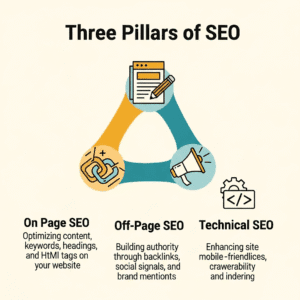
Conclusion
SEO in 2025 is about creating valuable, user-focused content while optimising your website for search engines. By understanding on-page, off-page, and technical SEO, beginners can build a strong foundation for driving organic traffic.
Follow the tips in this guide, stay consistent, and avoid common mistakes to see results. With patience and effort, your website can rank higher, attract more visitors, and comply with AdSense rules for monetisation.
Start small, track your progress, and keep learning to master SEO!
FAQs About SEO for Beginners in 2025
- What is the difference between SEO and paid ads?
Ans. SEO focuses on organic traffic through content and optimisation, while paid ads involve paying for top spots on search engines. SEO is free but takes time, while ads provide immediate results but cost money. - How long does SEO take to show results?
Ans. SEO typically takes 3 to 6 months to show significant results, depending on the level of competition, content quality, and optimisation efforts. Consistency is essential. - Can I do SEO without technical skills?
Ans. Yes, beginners can start with basic on-page SEO, such as writing high-quality content and incorporating relevant keywords. Technical SEO can be learned gradually or outsourced. - Is SEO still relevant in 2025?
Ans. Absolutely! SEO remains vital as search engines evolve to prioritise user-focused, high-quality content. It’s a cost-effective way to drive traffic. - How are my SEO efforts practical?
Ans. Use Google Analytics to monitor traffic growth, track keyword rankings, and measure user engagement. Google Search Console shows which keywords drive clicks.


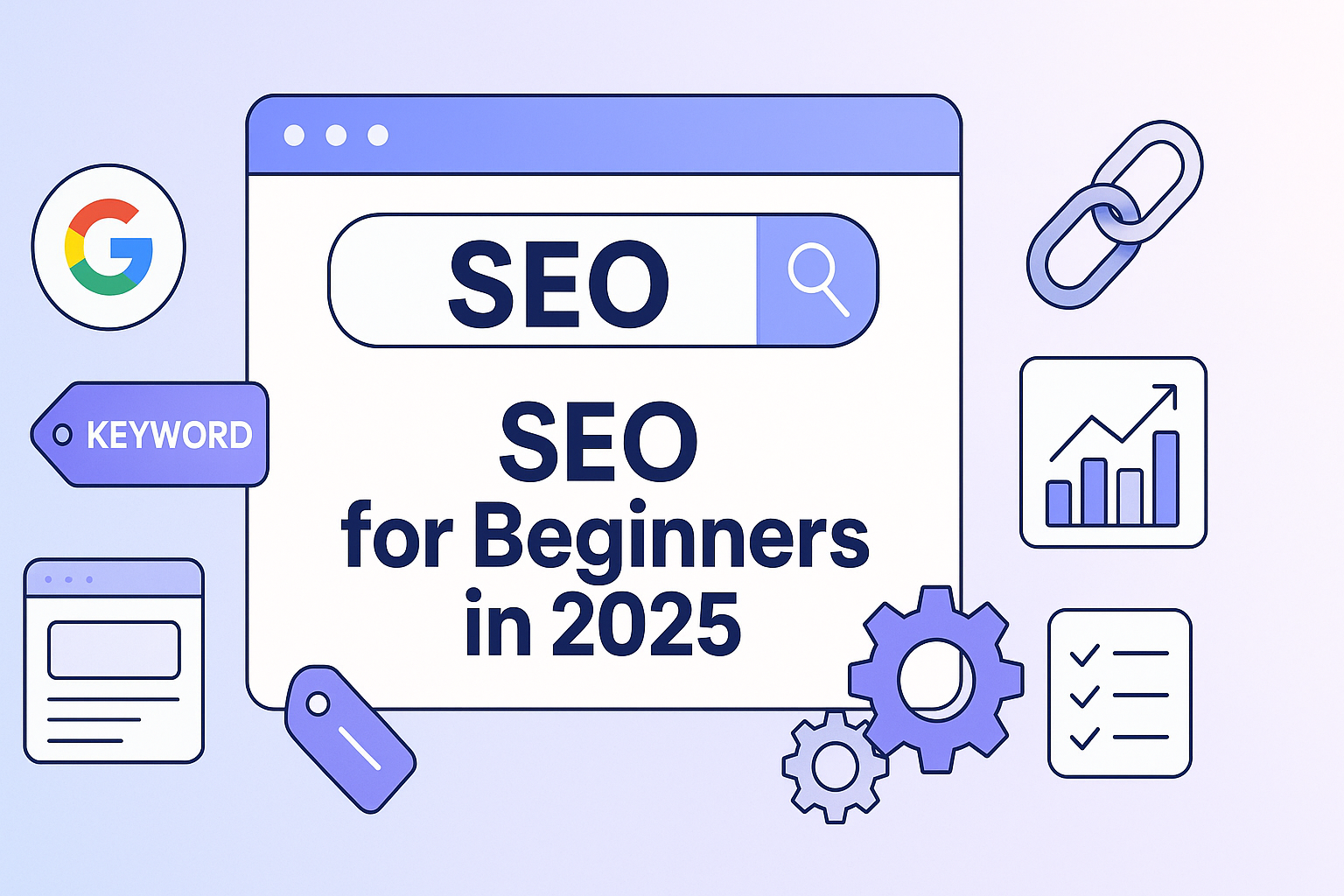

Leave a comment